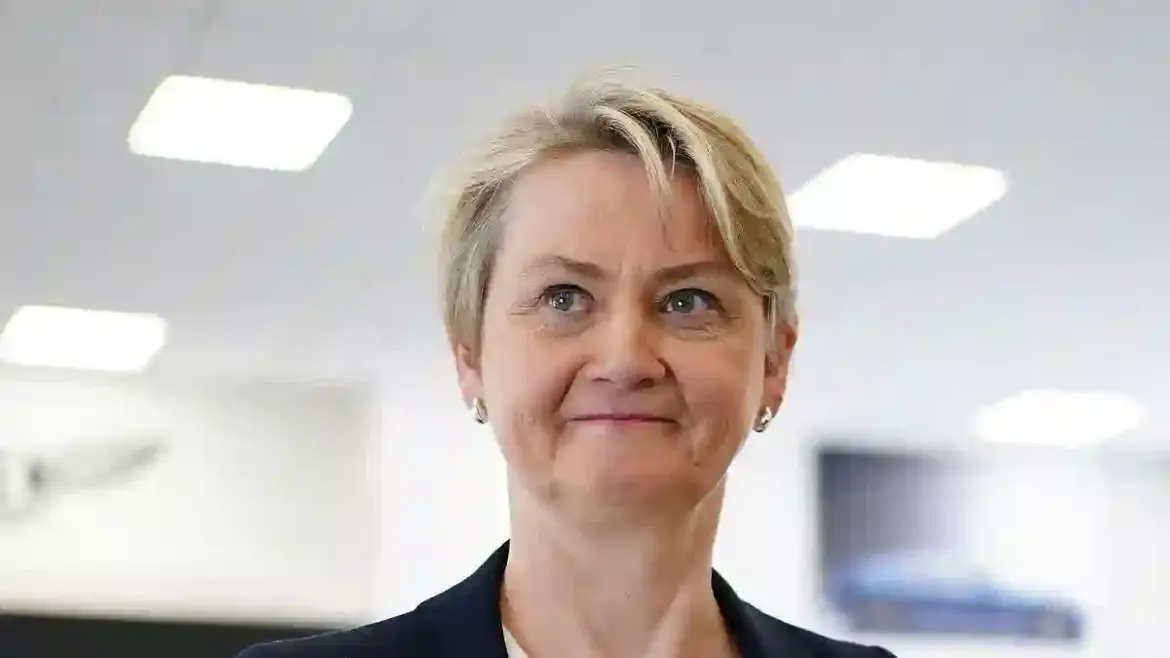When Yvette Cooper stepped into one of the most demanding roles in government, expectations were sky-high.
She had built her career on a reputation for being thorough, knowledgeable, and detail-driven.
But just over a year into her tenure as Home Secretary, her record is being described as one long string of failures — from immigration to crime to free speech controversies.
What started as a chance for Labour to prove it could manage Britain’s borders and keep the nation safe has instead spiraled into a political headache, with Cooper now facing fierce criticism both inside and outside Westminster.
The Broken Promise on Small Boats
One of Cooper’s biggest pledges when she took office was Labour’s “smash the gangs” initiative, aimed at tackling people smugglers responsible for the dangerous Channel crossings.
The idea was to create a Border Security Command to disrupt, arrest, and prosecute those driving the small boats crisis.
But for many in the public, the reality has looked very different.
Instead of seeing criminal networks dismantled, they’ve mostly witnessed photos of migrants being picked up mid-Channel and ferried to Britain without papers.
Critics have branded it a “taxi service,” and the numbers tell a worrying story.
Since Labour came to power in July 2025, more than 50,000 migrants have crossed the Channel — the highest figure ever recorded within such a short period.
By comparison, it took Rishi Sunak’s Conservative government nearly 20 months to hit the same number.
Strain on Public Services
The influx has had ripple effects across the country.
With record arrivals, local councils have been forced to house migrants in hotels — sometimes four-star ones — or in scarce council flats.
Taxpayers foot the bill while British families remain stuck on housing waiting lists.
Even the Home Office has admitted the obvious: the system is piling pressure on health and education services.
Anger has spilled onto the streets. Demonstrations and arrests have marked a second summer of unrest, with police resources stretched thin.
Despite promises to reduce the use of hotels, countless venues remain unavailable to the public, filled instead with migrants.
The chaos at the Bell Hotel in Epping, Essex, has become symbolic of what critics see as the government’s inability to get a grip.
Rising Crime and Missed Opportunities
Immigration is far from the only issue weighing Cooper down. Critics argue her department has failed to confront major domestic crises too.
-
Shoplifting: Almost 800 incidents a day are going unsolved. ONS figures show shoplifting reached a record 530,643 offences in the year to March, a 20% rise from the year before.
-
Grooming gangs: Cooper’s refusal to launch a full inquiry has been branded a serious misstep by campaigners.
-
Online Safety Act: While aimed at shielding children from harmful content, experts warn it has tipped into curbing free expression.
Instead of building trust, these issues have left the Home Office looking reactive rather than in control.
Defining Terrorism and Activism
Cooper has tried to project toughness, most notably by declaring Palestine Action a terrorist group after activists broke into RAF Brize Norton and vandalized aircraft.
But the move sparked debate. Was the act truly terrorism, or just criminal vandalism?
Photos of elderly protesters being carted away in police vans only fueled the controversy and gave Palestine Action a wave of publicity.
Some critics argue her decision blurred the lines between terrorism and disruptive protest — potentially undermining her authority further.
Immigration as the Millstone
Polling makes clear what’s dragging Cooper down: immigration.
Nearly half of Britons now list it as one of the country’s biggest problems — the highest level of concern since before the Brexit vote.
And the Home Office still cannot answer basic questions. MPs recently discovered the department doesn’t even know how many visa holders overstay or continue working illegally once their permits expire.
Such gaps in data have only deepened the public’s sense that the system is broken.
Free Speech Backlash
Beyond immigration, another storm has been brewing: free speech.
Britain has found itself criticized internationally, even by US Vice President JD Vance, for cracking down on expression.
The most high-profile case came with the arrest of Graham Linehan, creator of Father Ted, over controversial posts on social media.
Five armed officers detained him at Heathrow, sparking outrage.
Met Commissioner Sir Mark Rowley admitted the police were trapped in an “impossible position,” forced to treat ambiguous online comments as potential crimes under existing laws.
For a country long proud of its press freedoms, the episode was humiliating — and it has raised uncomfortable questions about whether Cooper’s Home Office is undermining core British values.
A Reputation on the Line
When she entered the Home Office, Yvette Cooper was hailed as one of the most prepared ministers in the building — a seasoned expert who knew every corner of the department.
But as one long-serving minister put it, “whichever cupboard you open, all sorts of terrible things fall out.”
The problem, critics say, is that Cooper has flung open all the cupboards at once — without a clear plan to deal with the chaos that tumbled out.
What Comes Next?
With immigration dominating public concern, crime rising, and free speech controversies mounting, Cooper is in danger of being remembered less for her expertise and more for her failures.
Her future — and Labour’s broader credibility on law and order — may depend on whether she can finally turn around a department many describe as “unmanageable.”
For now, though, the public sees record migration, overstretched services, and a government that promised control but delivered crisi
